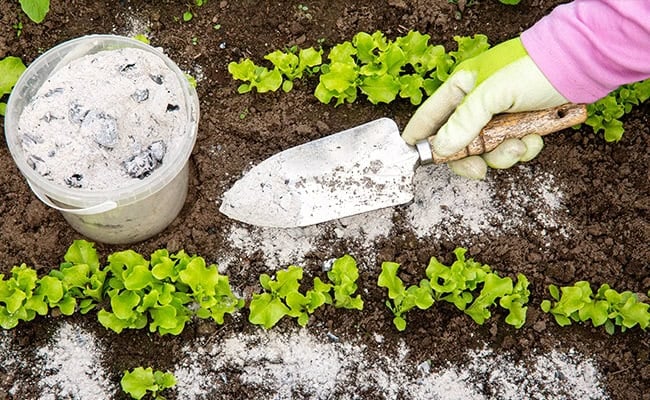A lush and thriving garden starts with healthy soil and the right nutrients. Feeding Your Garden Naturally is the best way to ensure that your plants grow strong without relying on harsh chemicals. Natural fertilizers not only enrich the soil but also support the environment and long-term sustainability.

As more gardeners turn to eco-friendly methods, the idea of Feeding Your Garden Naturally becomes increasingly popular. It’s a simple yet powerful philosophy—nurture your garden with what nature already provides. In this article, we’ll explore essential tips and techniques for using natural fertilizers the right way.
Understanding the Basics of Natural Fertilizers
What Are Natural Fertilizers?
When we talk about Feeding Your Garden Naturally, we refer to using organic substances to provide nutrients. Natural fertilizers come from compost, animal manure, bone meal, and other biodegradable sources. These materials break down slowly and nourish the soil over time.
Unlike synthetic fertilizers, natural alternatives improve soil texture and increase microbial activity. They offer a balanced way to strengthen root systems and promote plant health. By Feeding Your Garden, you ensure a more vibrant and resilient garden ecosystem.
Benefits Over Chemical Fertilizers
One of the main reasons for Feeding Your Garden Naturally is to reduce dependency on synthetic products. Chemical fertilizers may offer fast results, but they can harm beneficial organisms and degrade soil quality over time. Natural fertilizers, in contrast, build soil health gradually and safely.
Additionally, natural fertilizers don’t leach harmful residues into groundwater. This makes Feeding Your Garden an eco-conscious choice for both home gardens and large-scale farms. Long-term benefits include stronger plants and cleaner, more sustainable gardening practices.
Popular Types of Natural Fertilizers
Compost and Kitchen Waste
Composting is the cornerstone of Feeding Your Garden Naturally. By turning kitchen scraps and garden waste into nutrient-rich soil, compost becomes a powerful organic fertilizer. It adds structure to soil and improves water retention.
Vegetable peels, coffee grounds, and eggshells are great ingredients for your compost pile. Regular composting reduces waste and gives your garden a steady supply of natural nourishment. Embrace this habit as a core part of Feeding Your Garden.
Animal-Based Fertilizers
Another effective way of Feeding Your Garden Naturally is through animal-based fertilizers like manure and bone meal. These materials are rich in nitrogen, phosphorus, and potassium—essential nutrients for plant growth. Manure from cows, chickens, and horses can be composted for safer use.
Bone meal, derived from ground animal bones, provides phosphorus to support flowering and root development. These options help balance the soil’s nutritional content while staying organic. Including them in your routine is essential for Feeding Your Garden.
How to Apply Natural Fertilizers Effectively
Timing and Frequency
Timing is everything when it comes to Feeding Your Garden Naturally. Apply natural fertilizers during planting season or early growth stages for best results. Frequent, light applications work better than heavy, infrequent ones.
Monitor your plants and soil to determine when another feeding is needed. Over-fertilizing, even with natural products, can cause imbalances. Remember, Feeding Your Garden is about steady and mindful nurturing.
Proper Mixing and Placement
Proper application techniques make Feeding Your Garden Naturally more effective. Mix compost or manure into the topsoil so nutrients are easily accessible to plant roots. For liquid fertilizers like compost tea, spray directly on leaves for quick absorption.
Avoid placing concentrated fertilizers directly on plant stems or trunks. Spread them around the base and water gently to help nutrients sink in. These small techniques enhance the impact of Feeding Your Garden.
Creating Your Own Natural Fertilizer
DIY Compost at Home
One of the most rewarding aspects of Garden Naturally is making your own compost. Start by collecting fruit and vegetable peels, dry leaves, and shredded newspaper. Layer them in a compost bin and turn regularly to speed up decomposition.
In a few weeks, you’ll have a dark, crumbly substance rich in nutrients. This homemade fertilizer is free and sustainable. It’s an easy way to stay committed to Garden on a daily basis.
Brewing Compost Tea
Compost tea is a liquid fertilizer made by soaking compost in water. It’s an excellent tool for Feeding Your Garden Naturally because it delivers nutrients directly to plant leaves and roots. Simply steep compost in water for 1–2 days, then strain and spray.
Use compost tea once a week for best results. This method supports microbial life and boosts plant immunity. Add it to your routine as another great way of Feeding Your Garden.
Conclusion
By choosing to garden organically, you’re making a powerful commitment. Feeding Your Garden Naturally leads to healthier plants, better soil, and a cleaner environment. It’s a simple yet profound shift in how we care for the world around us.
With patience and consistency, the results of Feeding Your Garden Naturally become clear—stronger plants, richer harvests, and a more joyful gardening experience. Embrace this eco-friendly path and share the benefits with your community. In every handful of compost and every bloom you grow, Garden becomes a celebration of nature’s wisdom.